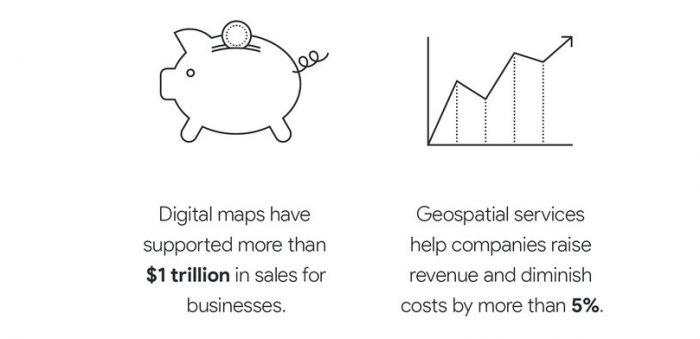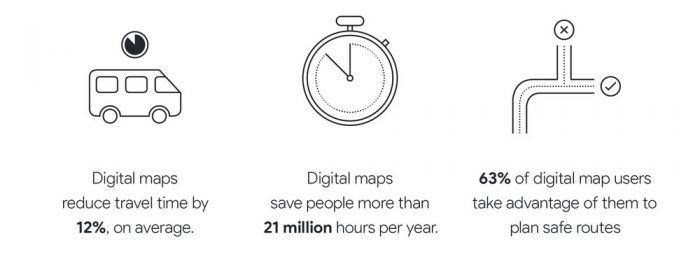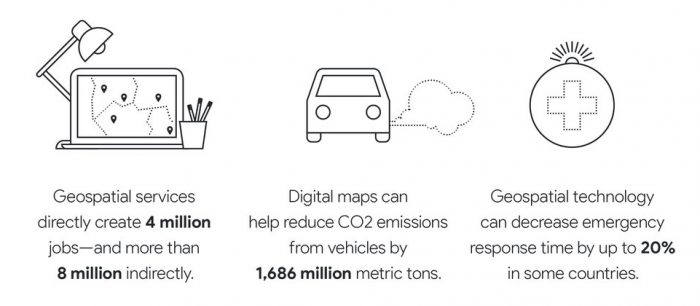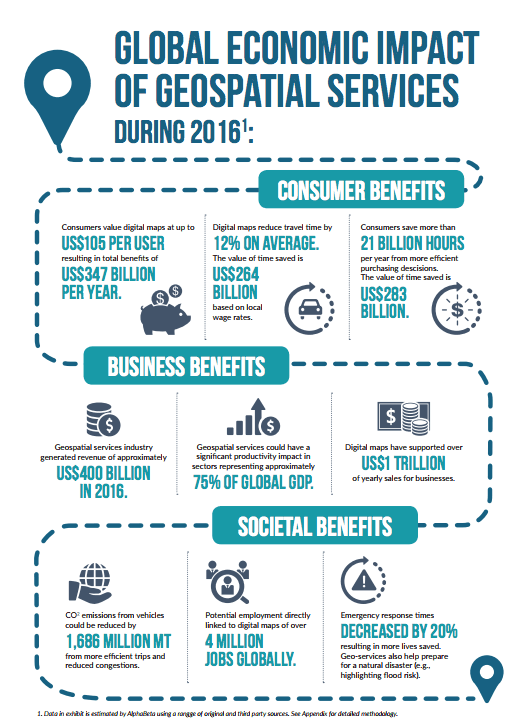Industry Insights
Geospatial Data Supports $1 Trillion In Business Sales
The past few years have seen unprecedented advancement in geospatial data and the technologies that use them. There are 100+ intelligent services – from voice search to intelligent assistants to mobile maps that our lives as consumers revolve around – they simply would not operate without geospatial data, or digital knowledge. Let’s face it, we […]

The past few years have seen unprecedented advancement in geospatial data and the technologies that use them. There are 100+ intelligent services – from voice search to intelligent assistants to mobile maps that our lives as consumers revolve around – they simply would not operate without geospatial data, or digital knowledge.
Let's face it, we take our maps for granted. We open an app or talk to a device and just expect to get what (we think) we want — directions, traffic data, an address, information on our planned destination, and so on. It's a pretty seamless process these days with solutions aplenty, and for the most part, accurate data.
Indeed, the investment today in knowledge-based services is massive and foundational for many companies. Google, Microsoft, Facebook, Foursquare, Apple, Uber, Lyft, Zillow, and many other companies have direct, deep involvement in geospatial and digital mapping work. This ranges from Uber's direct investment in building its own maps, to Google and Bing's efforts to digitize every road, street, and footpath on Earth. As consumers increasingly perform searches directly inside maps (86% of searchers look-up the location of a business on Google Maps and 40% of consumers prefer to search for local businesses through mobile maps on their mobile device), this will only become more important.
There is no debate that maps and geospatial data provide big benefits to businesses and consumers. But is there more? Can we quantify the impact of digital mapping on our world? Yes, we can — thanks to a new study commissioned by Google and prepared by AlphaBeta. It's worth reading Google's summary, and if you have the stamina, looking through the full 92-page report.
- Intelligent map services have supported over a trillion dollars in sales
- They've helped companies raise revenue and lower costs by more than 5%
- They help reduce travel times by an average of 12%
- Digital maps save over 21 million hours of time each year
- Over 60% of map users use them to plan safer routes
- Geospatial services directly create 4 million jobs a year; 8 million indirectly
- They help reduce CO2 emissions from vehicles by 1,686 million metric tons
- They have directly reduced emergency response times by 20% in some areas
U****tilizing geospatial data has tangible benefits.
The impacts of intelligent services and digital mapping are profound. We're talking increased revenue to businesses and decreased operating costs. Increases in public safety, job creation and growth, impacts to our environment, and savings in fuel use, time, and much more. Direct benefit exists for businesses in the form of revenue and cost savings, with further dividends coming from the goodwill gained as part of a movement to greater environmental awareness, contribution and support. Today's consumers want to do business with companies whose values mirror their own. To gain their loyalty, you need to align with their interests, ideals and thinking. And you have to appear in their journey as a consumer using intelligent services to solve their needs.
Seize your opportunity.
It's pretty clear that intelligent services like digital mapping and geospatial data play a fundamental role in all our lives — both business and personal. Indeed, it's a part of the reason that Yext exists. I think one of the biggest takeaways from all this information is the simple fact that, as a business, you can control and share so much knowledge data about your business. And you should.
Consider all the areas outlined in this report, then think of how your business plugs into the customer journey at each stage. A platform like ours can certainly support you in managing all your data, and help get you included in important consumer moments. But whether you use Yext, or commit the time to manage everything by hand, it's becoming increasingly clear that having a focus in this area — on this data — is a competitive advantage.




